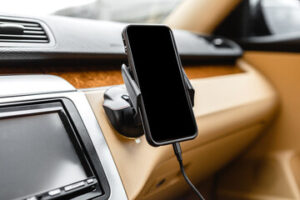Oregon Junk Removal Services are eco-friendly solutions to help declutter cluttered spaces and restore them to their intended use. They take a holistic approach to waste disposal, sorting items for donation or recycling and addressing sensitive issues like hoarding.

Most junk removal companies are committed to environmental responsibility, prioritizing recycling and donations over landfills. Reusable items are donated to local charities, and metals are recycled.
Junk removal services offer a variety of recycling options. Some companies will donate reusable items to local charities, while others recycle or dispose of unused metals, electronics, and other non-ferrous materials. They also help with hazardous waste disposal. This is an environmentally responsible way to deal with unwanted items, as landfills are a source of pollution.
Depending on the size of your junk, you can choose to hire a service that takes care of the entire haul or just one part of it. Many junk removal services offer same-day or next-day service for those with urgent needs. You can also save money by preparing your junk before the pickup date. This includes labeling and grouping similar items together. It is also important to clear paths for the crew.
A good junk removal company will provide you with a free estimate before beginning work. This will allow you to make an informed decision about the cost and services. You should also make sure the price quote includes all labor and disposal fees. It is best to choose a company with an excellent customer rating and a solid reputation for environmental conservation.
There are several different pricing models for junk removal services, including a flat fee model, volume-based pricing, and time-based pricing. The latter is often combined with a volume-based model and requires the crew to clock in and out. This method is less accurate than other pricing methods, and it may lead to misunderstandings. It is important to schedule junk removal services on a day when you can be present to avoid miscommunication.
In addition to the junk removal service, a good junk company will have a sorting facility where they can donate reusable items and recycle metals. This is a great option for those who don’t want to risk their safety by driving scrap metals to the local dump. Many companies have pledges to recycle 80% of the items they receive, which means that you can rest assured that your unwanted items will not end up in landfills. This will reduce your carbon footprint and protect the environment.
Donation
Junk removal services not only haul away your unwanted items, but they also take the time to sort and donate them. They may be able to drop off your gently used clothing at Goodwill, or they might make arrangements to recycle old electronics. Junk removal companies are committed to environmental conservation, so they prioritize donation and recycling over landfill disposal.
Many junk removal services focus on residential customers, but some are also equipped to handle commercial waste management. This includes junk from offices, stores, and industrial sites. The professionals can deal with anything from large dumpster rentals to full office cleanouts. They can even help you dispose of hazardous materials. Whether you need to clean out your attic or clear out an entire warehouse, they can help you get rid of all the junk that’s taking up valuable space.
Furniture removal is one of the most common types of junk removal. A junk removal service will dismantle your old furniture and separate the pieces into different parts, including metal, wood, and fabric. These parts can then be repurposed and recycled to create new, usable furniture. The company will also remove any other items you need to get rid of, such as yard debris and old appliances.
Electronics waste, such as old televisions and computer monitors, is a serious problem in the US. These items contain toxic components that leak into landfills and pollute the environment. It is illegal to throw these items in the trash, so hiring a junk removal company can be the best way to dispose of them. Junk King’s residential junk removal services will recycle and donate your unwanted electronic equipment, and they will properly dispose of any other items you need to get rid of.
DIY construction projects can be messy, and they often result in a lot of excess debris. Getting rid of this debris on your own can be difficult and dangerous. Junk removal services can help you get rid of construction materials and other junk so that you don’t have to worry about safety or environmental concerns. They can even pick up broken lawnmowers and other landscaping tools that are too big to fit in your household garbage bins.
Environmental responsibility
Junk removal services provide environmentally responsible junk disposal, avoiding hazardous materials that could pollute soil and groundwater. They also divert reusable materials to donation centers, helping the community and reducing waste. They also recycle plastics, metals, and paper, minimizing greenhouse gas emissions and conserving natural resources. Some companies even utilize waste-to-energy incineration facilities, converting trash into energy.
Professional junk removal companies can handle heavy and bulky items that would be difficult for you to transport. They also have access to specialty equipment, which allows them to remove large appliances and furniture safely. They also follow strict safety regulations to prevent accidents. Hiring a junk removal service is an excellent way to get rid of cluttered spaces and improve the look of your home or office.
When you choose a junk removal service, check its credentials and licensing. It is important to ensure that the company follows safe practices and has a clear price quote. It is also crucial to understand what types of materials the service can handle, including those that require special disposal methods. If you have any questions, you should ask the junk removal company about its recycling policies and environmental responsibility.
Many junk removal services offer a truck hauling option. They will arrive with a truck equipped with a dumpster to load your unwanted items into it. This option is ideal for post-renovation cleanups and large clutter. It is also flexible and can accommodate your specific needs, such as one-time clean-outs or recurring junk removal.
A junk removal service can help you declutter your living space, improving the appearance of your home or office and increasing its marketability. It can also remove any items that may be in violation of local junk disposal laws, such as hazardous materials or e-waste. These services can also assist you in tackling hoarding, which is a psychological disorder that results in cluttered living conditions and poses significant health risks for those affected.
When choosing a junk removal service, make sure they prioritize recycling and donations. Ask about their sorting process and how they recycle or donate reusable items. Ideally, you should prepare your items before hiring a junk removal service, such as labeling them and placing similar items together. This will ensure a smoother and safer removal process. It is also important to clear pathways and secure pets before a removal truck arrives, and to make sure your space is accessible for the junk removal crew.
Safety
Safety is an important aspect of Junk Removal Services, and a few simple precautions can help ensure a safe and efficient process. The first step is ensuring that you have all the necessary equipment and tools for the job, including gloves, protective eyewear, and dust masks. It’s also a good idea to have a first aid kit on hand in case of injuries or accidents. Identifying fragile or valuable items and setting them aside for special handling can reduce the risk of damage. For heavy or bulky items, using lifting equipment like dollies and hand trucks can significantly reduce strain on the body. Additionally, securing the load with straps or ropes can prevent shifting during transport, which could cause injury to other drivers or pedestrians.
Another crucial aspect of Junk Removal Services is ensuring that you’re not throwing away materials that can be recycled or donated. This includes separating out recyclable materials from non-recyclable ones, such as Styrofoam, which is a type of plastic that is not accepted in many recycling programs. In addition, ensuring that you’re not disposing of items that pose a hazard to workers or the public can minimize liability risks.
In the event of an accident or injury during junk removal, it’s important to have insurance coverage for your business. Wisdom Insurance offers policies that can cover the costs of medical expenses, property damage, and third-party claims. This provides peace of mind for businesses that prioritize the safety of their employees and customers.
Choosing a Junk Removal Service with a reputation for transparency and environmental responsibility can help you feel confident that your company is following best practices. Make sure to read reviews and check their website for a clear breakdown of their policies. In addition, look for a service that offers flexible scheduling to accommodate your needs. This way, you can avoid disrupting your daily schedule and still get rid of unwanted waste. Lastly, be sure to ask about their recycling and donation policies, as these can influence your decision. Finally, remember to always wear gloves when handling junk and use proper lifting techniques. To minimize back strain, be sure to bend your knees when lifting and hold the item close to your body.


